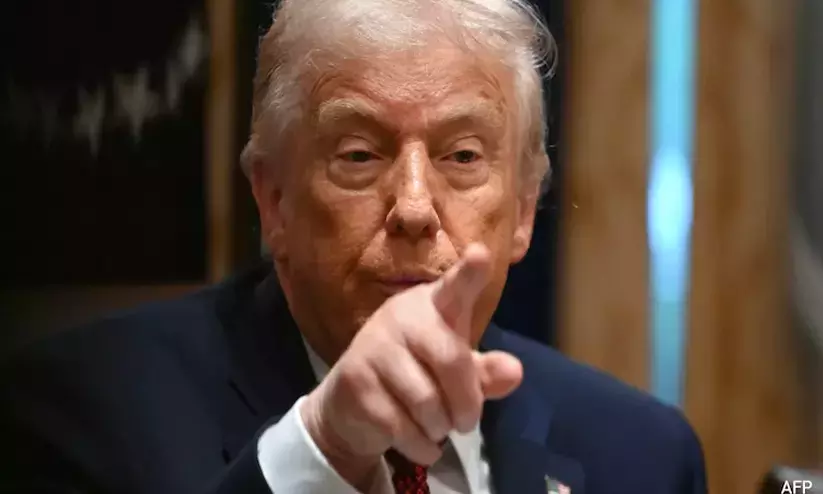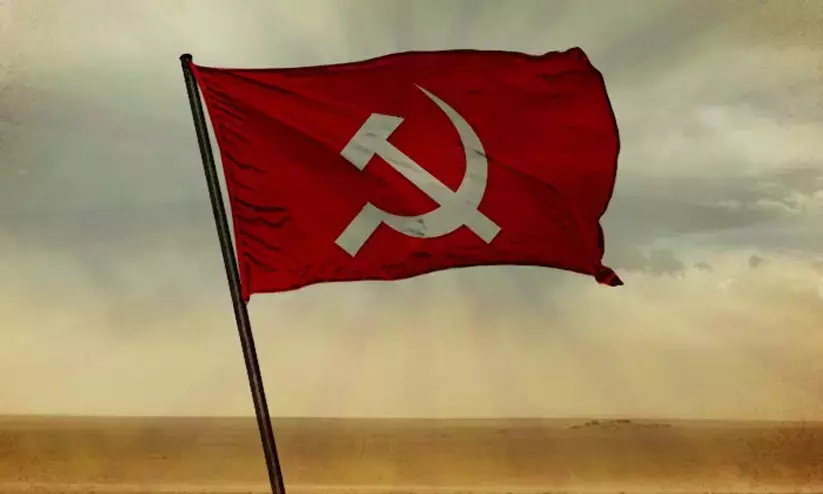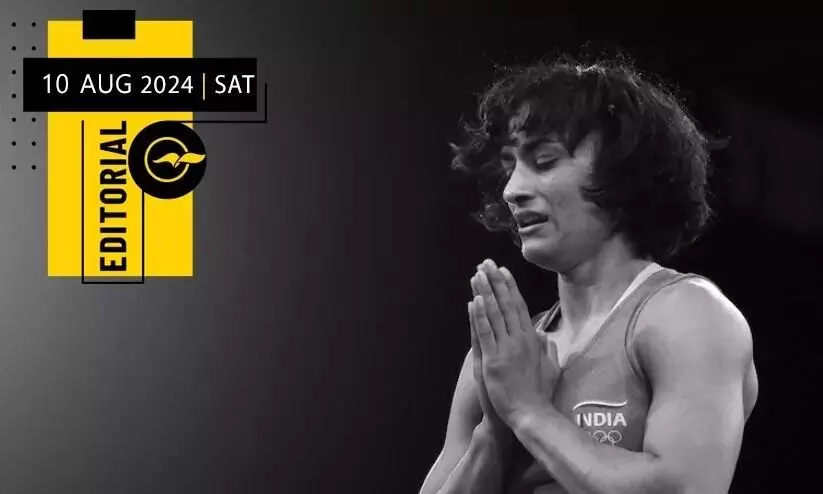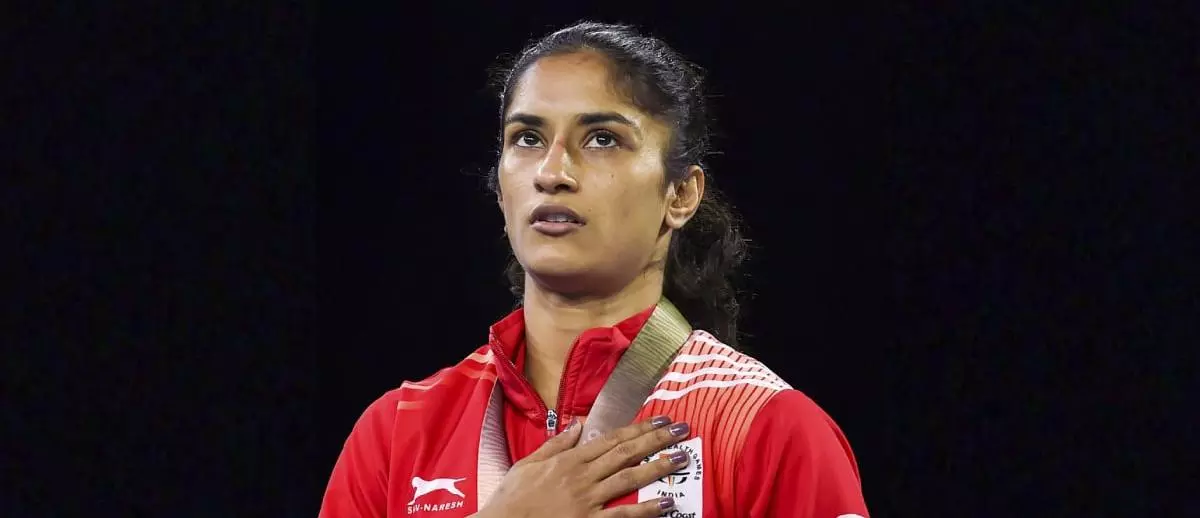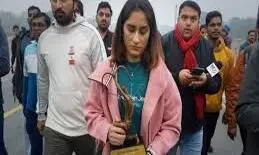
Stand tall Vinesh, with your head held high
text_fieldsThe Olympic Games, concluding tomorrow, have brought significant disappointment to India in recent sports history. While we did not have sky-high expectations, we had hopes pinned on a few athletes. Neeraj Chopra, the reigning world champion and Tokyo Olympic gold medalist in javelin throw, was expected to repeat his golden feat. Additionally, despite being viewed more as a source of entertainment, the Indian men's hockey team had aspirations for a medal given their rich Olympic history. There was also anticipation for an unexpected hero, similar to Abhinav Bindra's achievement. Young shooter Manu Bhaker contributed to the medal tally with an individual bronze, and the mixed team of Manu and Saurabh Jodh Singh secured another bronze in shooting. The men’s hockey team, led by Harmanpreet Singh and goalkeeper P.R. Sreejesh, managed to win bronze, though they fell short of the gold they once dominated. Neeraj Chopra lived up to expectations, but the wrestling community faced a severe blow when Vinesh Phogat, a finalist contender, was disqualified, leaving the nation disappointed.
Every athlete, regardless of the sport, is the product of years of rigorous training, dedication, and sacrifice. While the spotlight often shines on medal winners and those at the pinnacle of their sport, even developing nations recognize the importance of nurturing their athletic talent and treat their athletes as national assets. These nations invest heavily in training facilities, ensure optimal physical and mental health, and leave no stone unturned in preparing their athletes for the global stage. However, the state of Indian sports presents a starkly contrasting picture. Corruption, political interference, and nepotism appear to be endemic in most sports federations. The allocation of funds for sports development at the state level is also marked by a severe lack of interest. States like Haryana, Punjab, and Maharashtra, which have produced numerous international medalists, receive a fraction of the funds that are channelled into states like Gujarat, which has a negligible record in sports. The motivations behind such skewed distribution are evident and need no further elaboration.
Vinesh Phogat, a strong contender for gold or silver, was disqualified from the competition due to a mere 100-gram excess in her weight during the pre-match weigh-in. While the existence of a conspiracy behind this incident remains uncertain, Olympic medalist boxer Vijender Singh has alleged foul play. In any other country, such a serious oversight would have prompted investigations and accountability at the highest levels, including ministers. However, in a nation where the head of the wrestling federation, accused of serious sexual harassment, has been shielded by those in power, the loss of Vinesh's medal is hardly surprising. It is worth recalling the irony of these athletes, including Vinesh, being dragged away by the police from a location not far from the new Parliament building during its inauguration. While they were fighting for justice against a sexual predator, they were denied the basic human right to live with dignity, let alone the opportunity to focus on their training and represent their country on the international stage.
The disappointment and anger that followed Vinesh Phogat's disqualification from the Olympics were palpable. It was disheartening to see people celebrating her misfortune, especially in a country where students are charged with sedition for expressing joy over Pakistan's cricket victories.
The incident highlighted deep-rooted misogyny and the extent to which some individuals were willing to go to undermine a successful female athlete. Vinesh had not only won the hearts of millions but had also made powerful enemies who felt threatened by her success and independence. Her refusal to compromise and her fight for the rights of women athletes made her a target. The Olympics became a stark reminder that for many, sports are not just about medals and glory but also about power and control. Vinesh's struggle revealed the darker side of Indian sports, where athletes are often exploited and subjected to unfair treatment. Her story is a testament to the resilience of the human spirit and a challenge to a system that often prioritizes politics over sportsmanship. The question remains: did Vinesh win, or did the system defeat her? Regardless of the answer, her legacy will be remembered as a symbol of resistance against injustice and a champion for women's rights.





